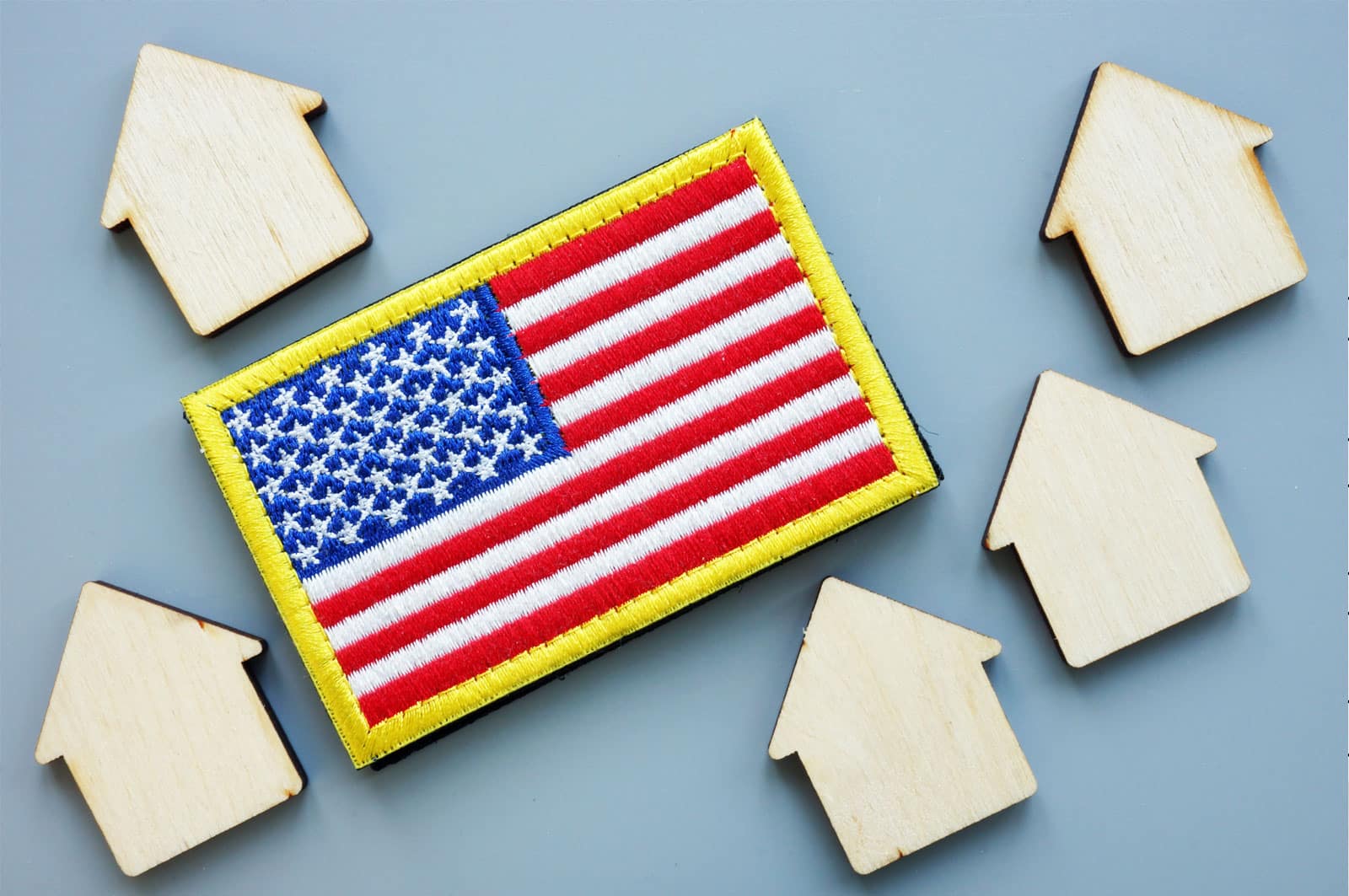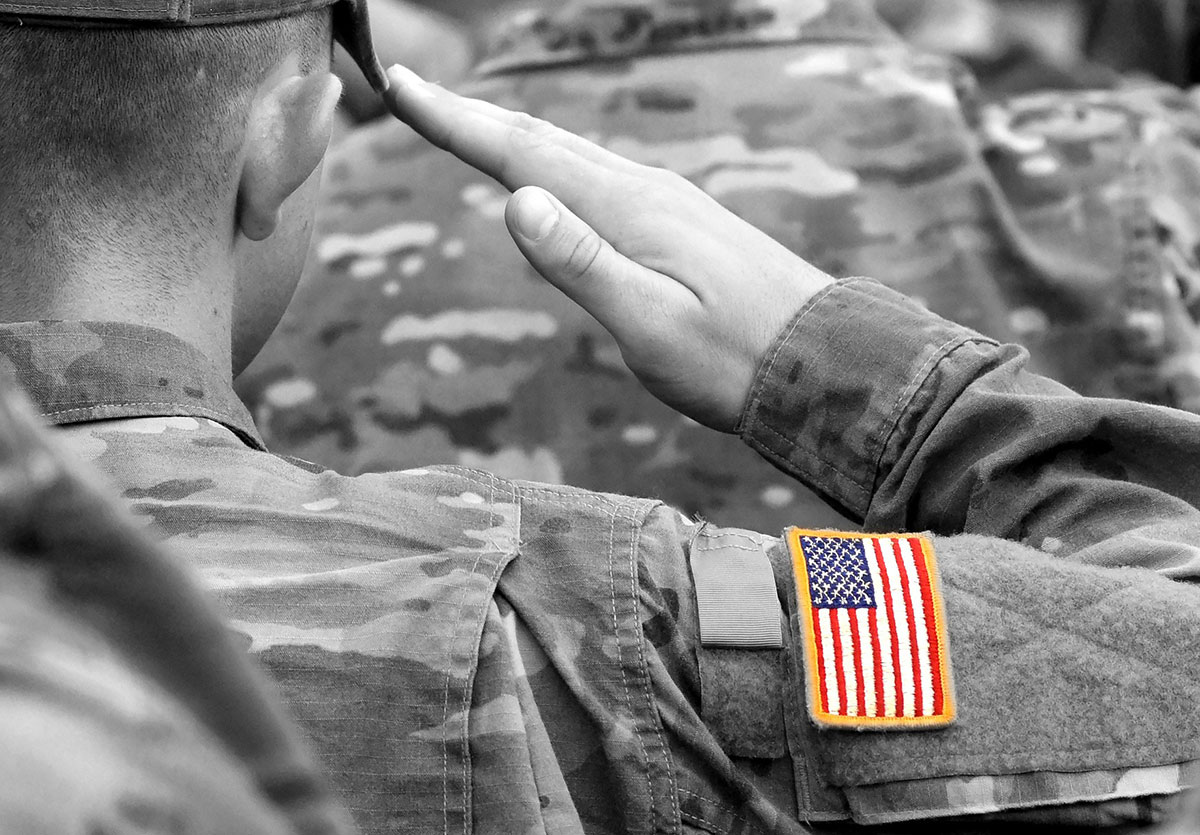Veterans Affairs Home Loans: A Guide for U.S. Military Veterans
One of the benefits of serving in the U.S. military is access to the Veterans Affairs (“VA”) loan program. This program helps military veterans buy a home with no money down while providing protections for lenders.
Veterans Affairs (VA) Loans
VA loans have lenient credit requirements because they are guaranteed by the U.S. Department of Veterans Affairs. This provides more comfort to lenders offering these loans because they carry less risk. Although loan approval is still required based on certain criteria, these loans help veterans of the military achieve homeownership.
This article will explore VA loans in-depth, providing tips on how to use your hard-earned VA benefits.
Basic steps include:
- Selecting a VA-Approved Lender
- Obtaining a Certificate of Eligibility (COE)
- Pre-Qualifying for a Loan Amount (optional)
- House Hunting / Purchase Agreement
- Lender’s Underwriting Process
- Closing / Move-In
VA Approved Lenders
A good VA-approved lender will offer honest advice, a decent rate, reasonable fees, and excellent customer service. Only lenders approved by the U.S. Department of Veterans Affairs can originate VA mortgages. Additionally, a VA specialty lender will have extensive knowledge about the VA loan process compared to a conventional lender who may only fund a few VA mortgages a year. VA loan specialists can also handle special situations like buying a home while overseas, the repeat use of home benefits, or relocations due to PCS and military retirement.
To gauge how often the lender closes VA loans, ask the question, “Do you service VA mortgages on a daily basis?” Other factors to evaluate include the number of years in business and ratings with the Better Business Bureau. Watch for warning signs, such as the lender being unsure of basic VA guidelines, steering you away from using your VA loan benefits, or not asking about your military service.
Compare loan terms and VA mortgage rates to ensure you get the best deal. Find a local VA specialty lender here.
VA Loan Certificate of Eligibility (COE)
Requirements for VA loan eligibility is based on your military service: *
- 2 years Active Duty
- Honorably-Discharged Veteran
- 6 years in the National Guard or Selective Reserve
- 90 consecutive days of Wartime Duty or 181 consecutive days of Peacetime Duty (U.S.C. Title 10).
*You might also qualify for a VA loan if your active duty spouse died in the line of duty.
To qualify for a VA loan, you need to obtain a VA Certificate of Eligibility (COE) from the:
- Gov eBenefits Online Portal
- Atlanta Regional Loan Center by U.S. mail (this is the only option for surviving spouses)
- Lender’s Veterans Affairs Online Portal
The COE proves you meet eligibility standards for VA loan benefits and determines your entitlement amount. Entitlement is the amount the Department of Veterans Affairs will guarantee on your VA loan.
To apply, veterans need to provide proof of service with a DD Form 214 and active duty servicemembers need to provide a signed statement of service with the following information: **
- Full Name
- Date of Birth
- Social Security Number
- Date of Entry
- Any Lost Time
- Name of Command
**For National Guard or Reservists, as well as surviving spouses, different requirements may need to be met.
The COE never expires. If you originally obtained it while on active duty, you’ll need to get another one after discharge.
VA Loan Entitlements
The VA loan entitlement is the loan amount guaranteed by the VA in the event of default. The two types are:
- Basic Entitlement: The VA guarantees the lesser of 25% of the total mortgage or $36,000. Many lenders will loan up to four times the entitlement amount for those who qualify for a VA loan. For example, if your basic entitlement is $36,000, you might be able to get a loan for $144,000.
- Bonus Entitlement: If your home costs more than $144,000 and you have full entitlement, the VA will guarantee 25% of your loan amount. If you have remaining entitlement, the VA will guarantee up to 25% of the Federal Housing Finance Agency (FHFA) loan limit minus the basic entitlement. The FHFA limit in 2020 was $510,400.
Pro-Tip: Use the expertise of a VA-approved specialist to accurately interpret entitlement calculations. A common mistake is seeing a zero on the COE form and thinking there is no entitlement available.
VA Loan Home Occupancy Requirements
The home being financed by the VA loan must be the primary home where you live.
Loan proceeds should not be used for investment properties or vacation homes.
VA Loan Pre-Qualification
Loan pre-qualification is not required, but it may save some time and reveal areas of improvement in your credit or debt-to-income ratio. To pre-qualify, your VA lender will obtain information about your income, credit history, employment, and marital status. The pre-qualification letter will give you an estimate for how much house you can buy, but does not guarantee loan approval, as the lender will still need to verify your information in underwriting, prior to final approval.
House Hunting & Purchase Agreement
The next step involves finding the right house, making an offer, and signing a purchase contract. Make a list of must-haves and consider proximity to good schools (which costs $50 more per square foot, on average). Consider using a real estate agent well-versed in VA loans and the “VA Option Clause,” granting veterans a refund of earnest money due to a low appraisal. Lastly, keep your lender involved, as they will help you negotiate closing costs and seller concessions.
VA Loan Appraisal & Inspection
A professional certified to perform appraisals to VA standards can evaluate the home being considered for VA financing. Once the signed purchase contract is received by the lender, the VA appraisal is ordered through the Department of Veterans Affairs. The VA Appraiser has 10 days from the order date to complete the appraisal, barring extenuating circumstances, and will confirm that the price you’ve agreed to pay for the home is in line with current value.
The VA appraisal process includes inspecting the home to make sure it meets minimum property requirements (VA MPRs). However, the VA appraisal does not take the place of a home inspection. It is recommended that borrowers hire a licensed inspector for a thorough check of appliances, plumbing, heating, cooling, roof, windows, structure, and signs of water damage in addition to documenting any code violations, defects, and the condition of the property.
VA Loan Underwriting
While waiting for appraisal documents, you’ll be submitting documents to your VA-approved lender to show you have the ability to qualify for the loan. Lenders often have their own criteria to determine a good credit risk for their loans.
In general, most lenders look for: *
- Sufficient and stable residual income to cover monthly mortgage payments. The VA has a chart that gives lenders an idea of how much residual income a borrower should have based on family size and where they live.
- Low Debt Levels (Debt-to-Income Ratio or DTI at or below 41%).
- FICO scores higher than 620.
*You may also be able to get a VA loan if sufficient time has passed after filing for bankruptcy.
A good loan officer will keep you informed at least weekly and answer questions thoroughly and professionally. If the home passes appraisal for value and VA minimum property requirements, and it’s verified by the lender that you qualify for your loan, the underwriter will give their stamp of approval.
VA Loan Costs and Fees
Closing costs will depend on your lender. Some costs you might pay for are title insurance, appraisal fees, credit check, discount points, and local/state taxes. These costs can be included in your total loan amount but may cost you more.
A VA funding fee is required, which depends on the 1) size of your down payment and 2) whether it’s your first-time use of the benefit. Although a down payment is not required, it can save you on fees. Note: Private mortgage insurance (PMI) does not apply for a VA loan because the entitlement covers more than 20% of the home’s value.
| VA Funding Fees | ||
| Down Payment | First-Time Use | Subsequent Use |
| Less than 5% | 2.30% | 3.60% |
| 5%-10% | 1.65% | 1.65% |
| 10% or more | 1.40% | 1.40% |
Closing and Move-In
After underwriter approval, you will need to provide proof of homeowner’s insurance and pay closing costs. Closing requires you to sign documents confirming you understand and agree to the loan terms. Once all closing documents are signed, the property legally transfers from the former owner to you.
Refinancing VA Loans
Existing VA loans may be refinanced with the interest rate reduction refinance loan (IRRRL) to reduce your interest rate. Essentially, additional VA financing replaces the current loan at a VA funding fee of 0.50% of the loan amount.
Help for Struggling VA Borrowers
If you can’t make payments, the VA can help you negotiate with your lender. With the VA’s expertise, it’s possible to avoid foreclosure through loan modification or other repayment plans. Call 877-827-3702 if you need help.







